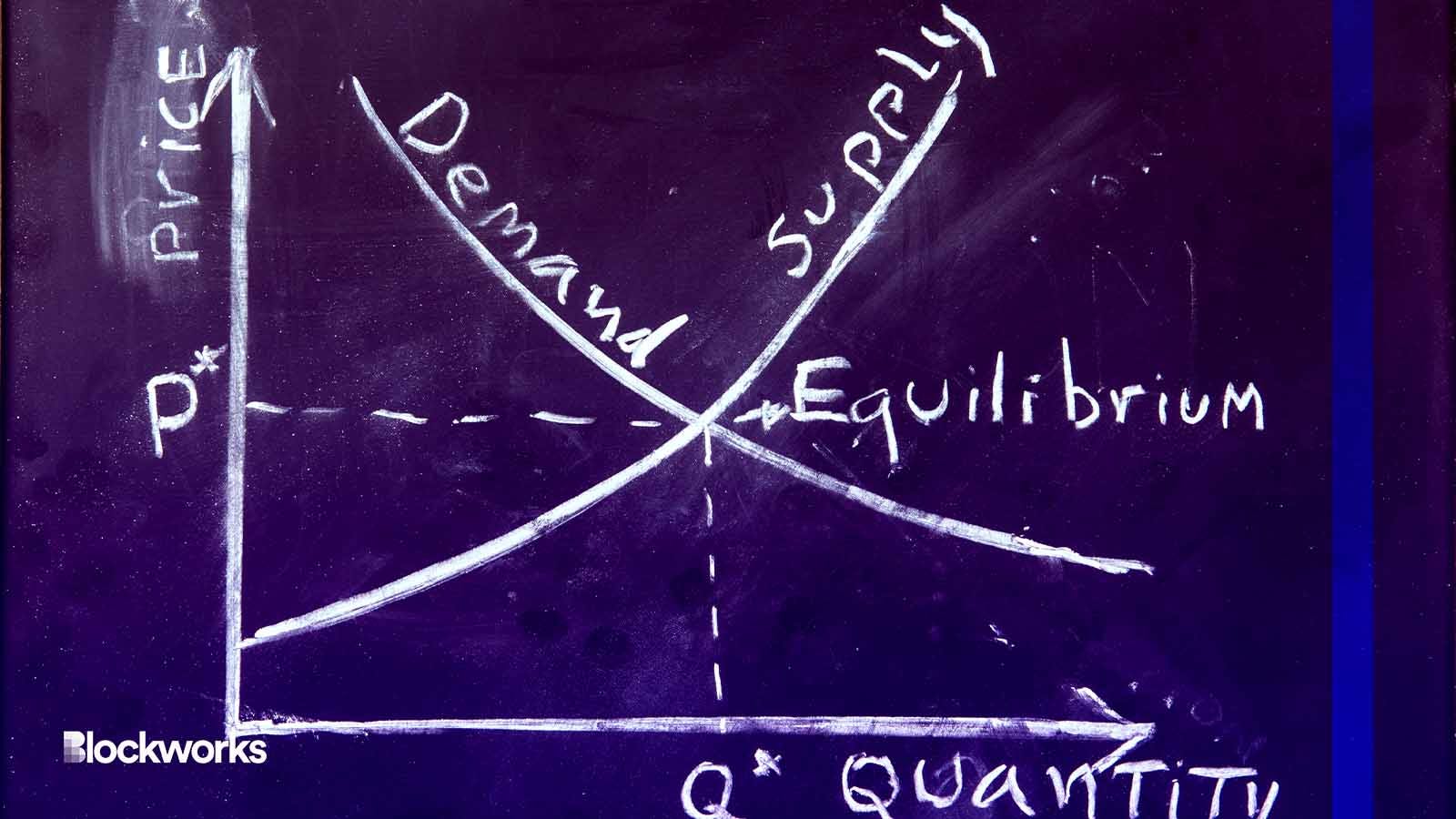Variant’s Walden advises crypto teams to opt for less governance and more free market
Walden sees more DeFi protocols taking the unbundled approach to building their marketplaces

lightofchairat/Shutterstock modified by Blockworks
Jesse Walden offers a message to crypto development teams: Keep it simple.
The co-founder and general partner at Variant says that one way teams in crypto can “maximize their shots on goal” is by minimizing the “surface area” of what is managed by their smart contracts on-chain. By doing so, developers can “outsource” the fine-tuning of elements, which can then be developed in an iterative fashion as market demands evolve.
Speaking on the On the Other Side podcast (Spotify/Apple), Walden suggests unbundling the fixed components of the system from those that could be tuned over time. The more dynamic components can then be controlled outside the protocol’s governance by free market participation.
“The on-chain portion of what you’re building refers to something that’s off-chain or controlled by you or by other third party operators that plug in these missing parameters to make the thing work.”
“A company or an individual — anyone — can permissionlessly plug in those components of the system so that there can be thousands of experiments and really rapid iteration,” he says.
Walden says he is seeing this modular framework approach “coming to fruition in DeFi.”
“We’re starting to see more DeFi protocols take this approach to building their marketplaces,” he says, citing Uniswap v4 as an example.
Backtracking through the earlier iterations of Uniswap, Walden says, “Uniswap v1 and v2 were very simple and very opinionated,” following a basic formula. “All tokens had to adhere to those parameters,” he explains.
The simplicity was “great,” Walden says, “but it was also risky.”
“What if that wasn’t the best formula? It would’ve been really hard to change and really hard to recall.”
Fortunately for Uniswap, the basic formula turned out to be pretty robust. As the protocol evolved from its initial versions to v3 and v4, Walden notes that the marketplace functions have grown more complex. By v4, nearly every dynamic aspect of the marketplace can now be tailored to meet specific needs.
It’s an elegant design, Walden says, that has effectively unbundled the dynamic components from the core functionality of the protocol.
Uniswap v4 is “explicitly unopinionated,” Walden says, implementing “hooks” that allow any participant to come up with their own curve and dynamic parameters for the marketplace. According to Walden, this functionality enables the free market to decide which parameters work best for a given situation.
“It gives consumers more options through free market competition to parameterize the marketplace.”
Walden expects companies like Gauntlet — specialized experts in risk parameterization of protocols — to enter the fray with their own unique approaches. “And because it’s permissionless and anyone can do it, you can expect there’s going to be a lot more competition coming for Gauntlet,” he says.
Many more experts will enter the field seeking revenues by spinning up their own set of dynamic market parameters, Walden says, “and I think that’s really good.”
When a token holder governance makes all the decisions, as is the case in some “legacy DeFi protocols,” Walden says, “you essentially have central planet versus free market competition and iteration for the parameters that are going to best serve customers.”
Allowing the market to set parameters, Walden says, “enables much more rapid iteration, much more competition and ultimately, more choice for end-users.”
Get the news in your inbox. Explore Blockworks newsletters:
- The Breakdown: Decoding crypto and the markets. Daily.
- 0xResearch: Alpha in your inbox. Think like an analyst.






